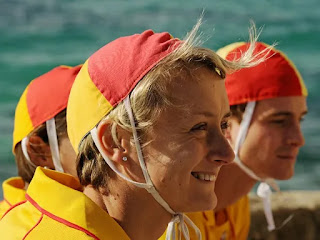I've been struck by the lack of election-related 2024 Words of the Year from the English dictionaries (for a list, see November's newsletter). So I am here to repair that with my US-to-UK Word of the Year:
landslide
...which was much-used in its figurative sense to describe the result of the UK election that ended 14 years of Conservative government.
 |
| some landslide headlines in UK media |
Here's how it it's been showing up in British news sources:
 |
| landslide in UK sources in the NOW corpus |
Though the Google Books data is not as up-to-date, it shows a general increase in the term in BrE, starting at the turn of the 20th century, but speeding up from the 1980s. (It's possible that has something to do with the 1975 hit song "Landslide" by the Anglo-American band Fleetwood Mac.) I'm not too worried about the dip in the 2000s. Most words I look up in Google ngrams dip in the 2000s for some reason.
 |
| landslide in UK publications in Google Books |
The first OED citation for landslide (which it marks as "Originally U.S.") is from 1822; early citations are hyphenated, but the hyphen was soon lost. (That OED entry was updated in 2021.) The BrE word landslip, by comparison, dates back to at least the 1670s. While the OED marks landslip as 'also figurative' none of its examples are figurative uses (but that entry has not been updated since 1901; it is irregularly hyphenated into the 19th century). Here are the definitions:
landslide 1. The sliding down or subsidence of a large mass of earth, rock, etc.; a landslip; esp. a collapse of earth or rock from a mountain or cliff. Also figurative. 2. An overwhelming majority of votes for one party or candidate in an election; a victory achieved with such a majority.
landslip The sliding down of a mass of land on a mountain or cliff side; land which has so fallen. Also figurative and attributive.
In the last one there, the headline says landslip, but landslide is in the first line of the article.
To me, landslide sounds much bigger than landslip, and that might be reflected in the large in the former definition. Around here in the South of England, landslips occasionally close down rail travel between Brighton and London. In that case, it'll be that some earth has washed down from the slopes along the (BrE) railway line/(AmE) train tracks. There, I don't tend to hear landslide, and sure enough, those headlines tend to be about landslips.
 |
| landslide in GloWbE corpus |



















